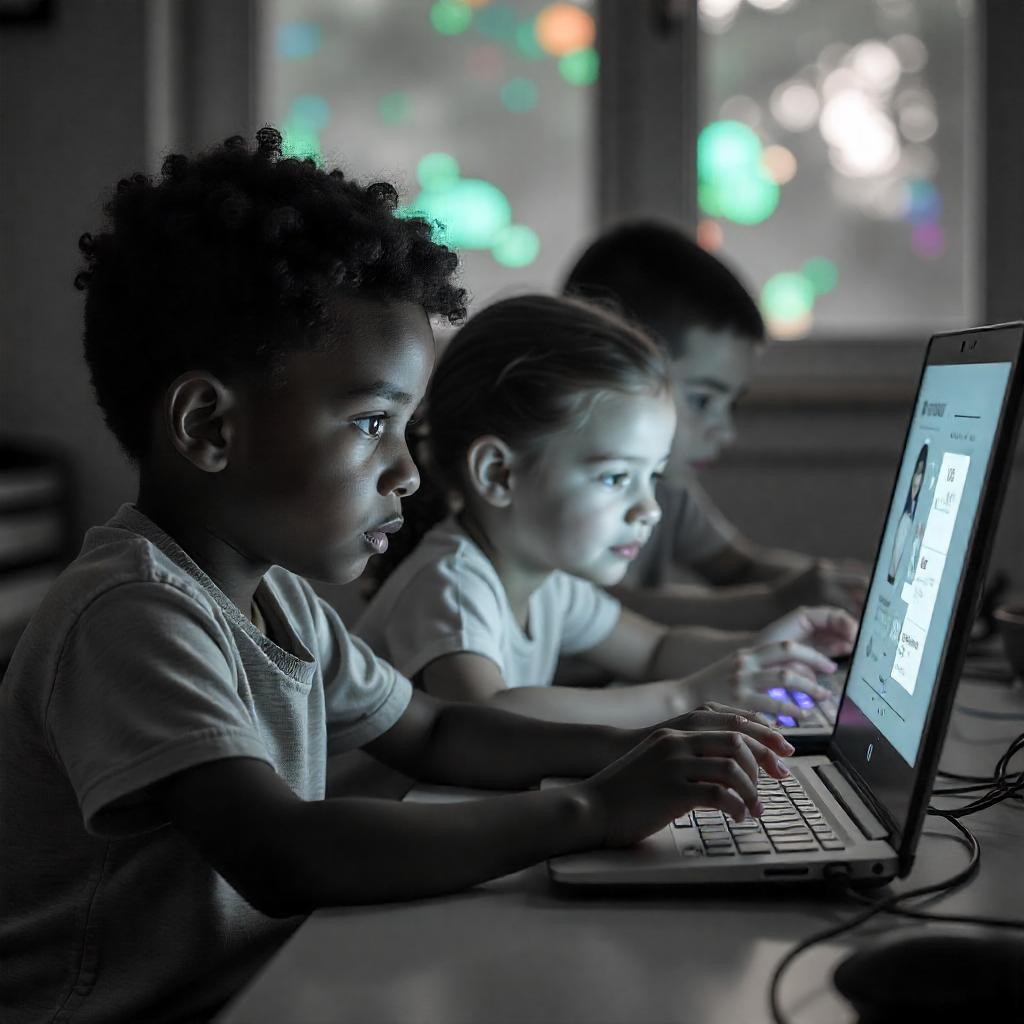Socialization Strategies For Online School Students
ization can be one of the biggest challenges for students in online school environments, as they miss out on the spontaneous interactions that occur in a traditional classroom. However, fostering meaningful connections and building a sense of community is possible even in a digital setting. Here are some socialization strategies to help online school students connect with their peers:
1. Participate Actively in Virtual Classes
-
Engage in Discussions: Encourage students to actively participate in virtual class discussions and ask questions during lessons. Contributing to these interactions helps them connect with classmates and fosters a sense of involvement.
-
Join Breakout Sessions or Group Activities: Many online courses use breakout rooms or group assignments to encourage collaboration. If possible, students should engage fully in these activities, as they provide opportunities to meet peers and work together in small groups.
2. Join Online Clubs or Extracurricular Activities
-
Explore School-Hosted Clubs: Many online schools offer virtual clubs or extracurricular activities. Whether it’s a debate club, art class, coding group, or book club, joining such activities gives students the chance to meet others who share similar interests.
-
Create a New Group: If the online school doesn’t offer many options, students can create their own clubs or interest-based groups with classmates. They can use platforms like Google Meet or Zoom to meet virtually and share activities.
3. Attend Virtual Events
-
Participate in Online Events and Webinars: Some online schools host virtual events, like guest speaker sessions, talent shows, or school-wide meetups. These events are great opportunities for students to socialize with peers from different grades or classes.
-
Organize Virtual Meetups: Encourage students to set up their own virtual social events, such as gaming nights, movie watch parties, or trivia contests. Using platforms like Zoom, Discord, or Google Hangouts can make these social gatherings more interactive and fun.
4. Use Social Media and Communication Platforms
-
Engage in Online School Communities: Many online schools have social media groups or communication platforms (e.g., Slack, Discord, Facebook Groups) where students can discuss assignments, share memes, or just talk. Encouraging students to join these groups can help them connect with peers.
-
Join Interest-Based Groups: Platforms like Discord or Facebook have groups for nearly every interest imaginable—gaming, reading, sports, etc. Students can join groups that match their passions and meet other like-minded individuals.
5. Schedule Regular Virtual Hangouts
-
Set Up Regular Video Calls with Friends: Encourage students to schedule regular virtual hangouts with their friends or classmates. This could include study sessions, casual chats, or shared activities like watching movies, playing games, or listening to music together.
-
Use Group Chats: Encourage students to create group chats for friends or classmates on messaging platforms like WhatsApp, Telegram, or Snapchat. Group chats offer a casual space for students to check in with each other, share experiences, and plan hangouts.
6. Join or Create Collaborative Study Groups
-
Collaborate on School Projects: Many students miss the collaborative aspect of working on school projects with others. Students can form study or project groups where they can work together virtually. This gives them both academic benefits and social interaction.
-
Share Resources and Study Tips: Students can exchange notes, share resources, or quiz each other to prepare for exams. Collaborative learning not only reinforces the material but also fosters friendships.
7. Get Involved in Community Service Projects
-
Volunteer Virtually: Some students find socializing through shared community goals. Encourage students to participate in virtual volunteer work, whether it’s tutoring younger students, helping with online charity drives, or contributing to virtual fundraisers.
-
Organize Virtual Charity Events: Students can also organize virtual charity events, like online auctions, donation drives, or awareness campaigns. Working together on a meaningful cause builds camaraderie and social bonds.
8. Leverage Virtual Learning Platforms for Social Interaction
-
Use Discussion Boards: Many online learning platforms have discussion boards where students can post questions, ideas, or thoughts about the course. Encourage students to engage with others’ posts or reply to classmates’ questions, which can open up opportunities for more conversation and interaction.
-
Host Study Groups or Study Sessions: Some platforms allow students to meet in virtual study spaces or groups. Students can invite classmates to study together, where they can not only help each other with homework but also build friendships.
9. Play Online Games Together
-
Join Multiplayer Games or Online Events: Many students bond over multiplayer video games, where they can communicate and interact with each other in a shared, social space. Encourage your teen to join gaming sessions with friends, whether it’s something casual like Fortnite or more strategic games like Minecraft.
-
Participate in Online Tournaments: Some online gaming platforms host tournaments or events that your teen can join, allowing them to interact with players from around the world while still building connections with their friends.
10. Schedule In-Person Meetups (When Possible)
-
Organize Safe Meetups: If safe to do so, encourage your teen to arrange in-person meetups with classmates who live nearby. These can be low-key activities, like hanging out at a park or visiting a local café, while adhering to any safety guidelines in place.
-
Attend Local or Regional Events: Some online students meet up for regional events or group activities organized by the school, such as field trips, sports events, or social gatherings. Check with the school to see if such opportunities exist.
11. Foster Positive Peer Relationships
-
Encourage Empathy and Kindness: Teach students how to be supportive, empathetic, and kind in online interactions. A positive online environment fosters stronger friendships and reduces feelings of isolation.
-
Participate in Peer Mentoring: Some online schools have peer mentoring programs where older students help guide younger students. Encourage your teen to either join or start a mentoring relationship, as this can build strong social connections and leadership skills.
12. Encourage Balanced Screen Time
-
Limit Excessive Screen Time: While online school and socializing are important, it’s also essential for students to balance screen time with other activities, such as exercising, reading, or spending time outdoors. A healthy balance ensures that socialization remains meaningful and not overwhelming.
-
Incorporate Face-to-Face Interactions: Whenever possible, encourage students to interact in person with family or friends outside of the virtual environment to prevent too much dependence on digital socializing.
13. Be Patient and Flexible
-
Encourage Open Communication: Remind students that building friendships and socializing online may take time. Encourage them to be patient and to keep trying different methods until they find what works for them.
-
Check in Regularly: As a parent or guardian, check in with your teen about their social experiences. Are they enjoying their social activities? Do they feel connected to their peers? Be supportive and offer suggestions if they’re feeling lonely or disconnected.




